Where the lyrical narration and some of the "materials" of surrealism met, where the Greek tradition "walked" hand in hand with European modernism, where the dream and imagination were illuminated by the Greek archipelago, where the harsh conscience expressed through allegorical contemplation, that is where the horizons of Odysseus Elytis' poetry lie. Lyrics that combine images with a rare verbal aesthetic, with a timeless expressiveness, with a shocking popular beauty and power. The sun and the Aegean , the "distortion" of war, the chill of the soul, but above all the "miracle" of language, that "voice" that embraces all of Greece with its special metal.
Member of the famous literary generation of the '30 , was early on faced with the "dilemma" of using the new movements that brought the revolution to Western Europe, but he was quickly able to give his answers, presenting a personal idiom, which preserved the Greek "landscape" within it, leaving room and to the new "techniques", which were perfectly adapted to his own vision. Escaping the trap of unconditional submission to surrealism, he did not allow the modern to present itself as the dominant pole in his literary field, but allowed touches of these forms to give freshness to his thought, his art and ultimately, his poetry.
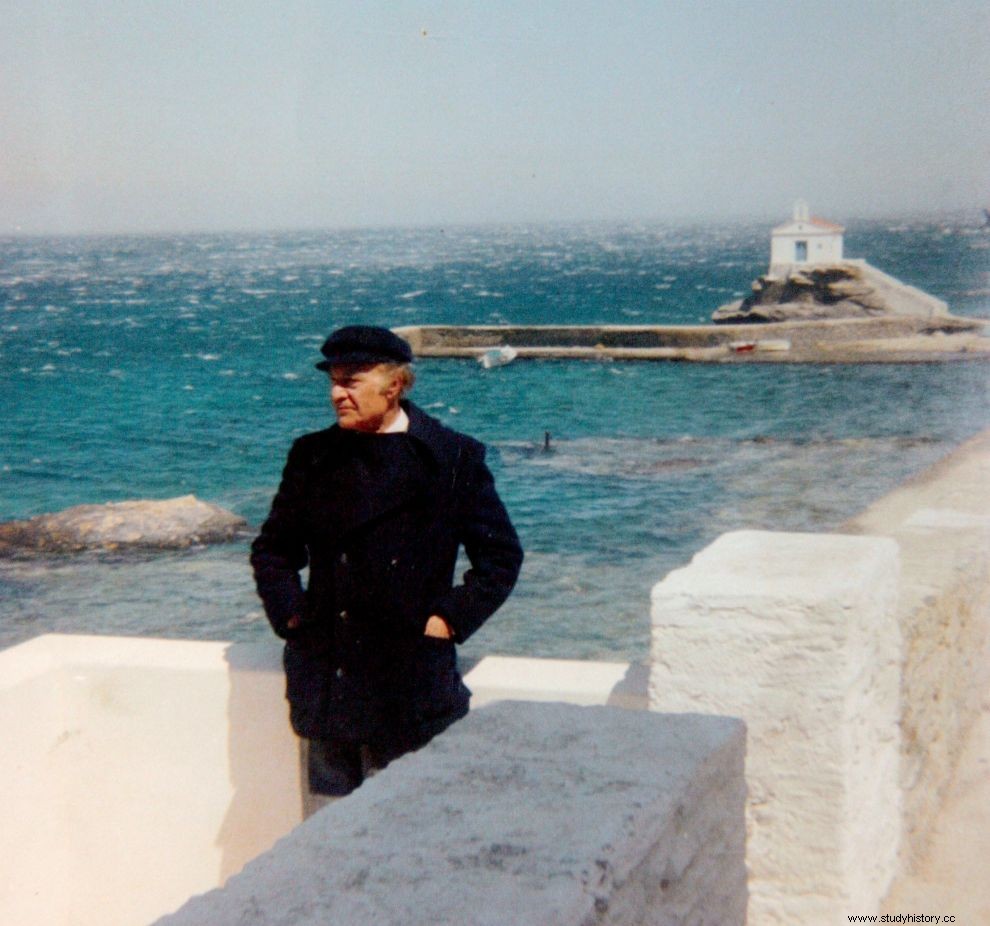
The Magazine presents a small tribute to the man who expressed the omnipotence of the dream, reciting his wanderings with aesthetic purity on a journey whose destinations were the land, the homeland, the sea, freedom and the sun. Elytis is great, not - only - for the Nobel Prize for Literature in 1979, but - above all - for the "high gates" he built towards beauty, love, higher truth, the understanding of desecration, the drama of sacrifice, the intensity of war, the answers to every moral reflection, the value of light. All this, through his own poetic "revolution".
Odysseas Alepoudelis, as was his real name, was born in Heraklion, Crete, originally from Mytilene, but raised in Athens. The son of a wealthy family, he came into contact with the sea and the Greek maritime tradition from an early age, after spending his summers on the islands of the Aegean, which prepared his fertile, lyrical vision, which began to be seen from his high school years, when he collaborated with "Children's Fitness" , the pre-eminent children's "literary" magazine of the time. He had already begun to read Greek and foreign authors and poets with zeal, spending all his money on buying books.
THE CONTACT WITH SURREALISM
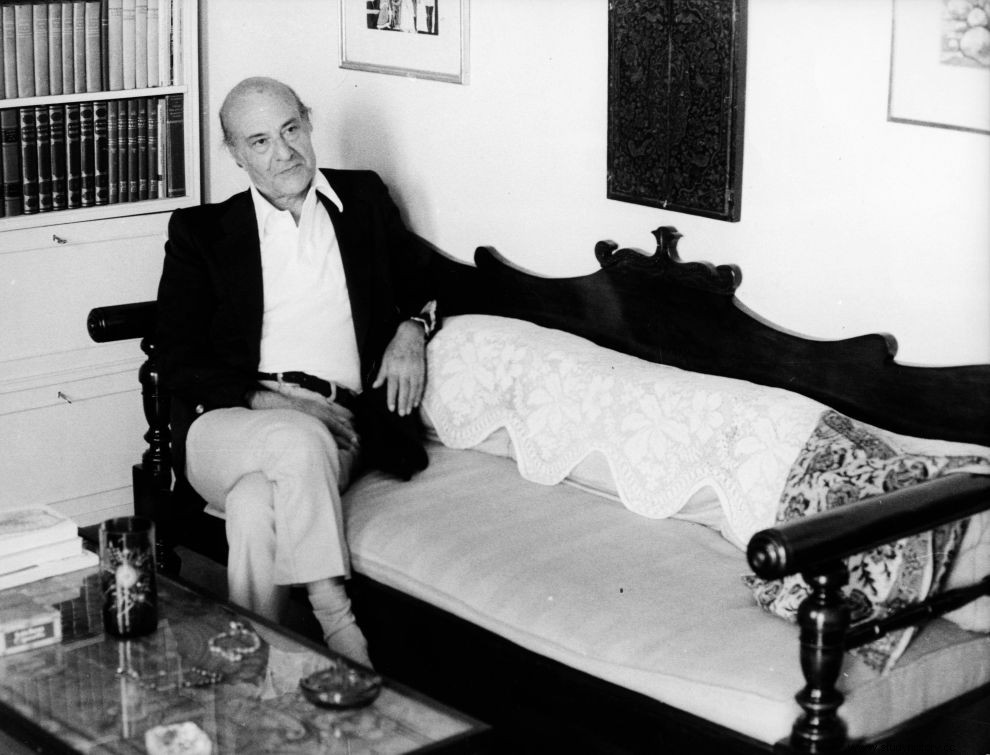
Shortly after graduating from high school and while being pressured by his parents to study chemistry, he was introduced to the work of Paul Elyar , "passing" the negativism of Dadaism, but leaving his inner world to be fascinated by surrealism, by the "clumsiness" of its terminology and at the same time by the very questioning that embodied in the poetry the desire of "revolution". Eliard, but also other French surrealist poets, such as Louis Aragon, René Crevel, Roger Vitrac, influenced Elytis' ideas about literature and "prepared" his turn that would follow in the following years, now crystallized in his verses .
So, in 1930, at the age of 19, he ruled out the prospect of chemistry and enrolled in the Athens Law School, continuing his study of Greek poets, but also his wanderings in the Greek countryside, where he persistently searched for his own characteristics and hers "truth", to give perspective to his artistic development. It was then that he started writing his first poems, while at the same time he came into contact with the circle of the magazine "Nea Grammata" (Seferis, Politis, Sikelianos, Theotokas, Terzakis, Tsatsos, Karantonis etc.), which presented in detail the new western forms, trends and movements, mainly of the writers and poets of the younger generation.

In the same year that the "New Letters" were first published, Elytis met Andreas Empirikos and became even more introduced to surrealism , while a few months later his first poems were published in the magazine, for the first time under the artistic pseudonym that would accompany him throughout his life. In "Nea Grammata", Elytis also published translations of Elyar's poems, prefacing their creator as "the poet who, whatever he writes, immediately reaches our heart, hits us immediately like a wave of another life, drawn from the sum of the most magical of our dreams". A year later, in 1936, at the First International Surrealist Exhibition in Athens, Elytis impressed with a new aspect of his art.
He presented paintings with the collage technique, which had been invented since the 1910s by Picasso and Braque, in a branch of synthetic cubism, which immediately passed into poetry with Guillaume Apollinaire as a typical example. At that time, Elytis also met Nikos Gatsos, another poet who followed in the footsteps of hyperrealism, publishing "Amorgos" in 1943. In 1940 Elytis' first poetry collection was finally released, entitled "Orientations" , a first glimpse of how surrealist influences, instead of "leading" the poet's expressive form, served his journey through Greece, the Aegean, the sky and the light.
THE "SUN THE FIRST" AND THE "ASMA HEROIC AND MOURNING"
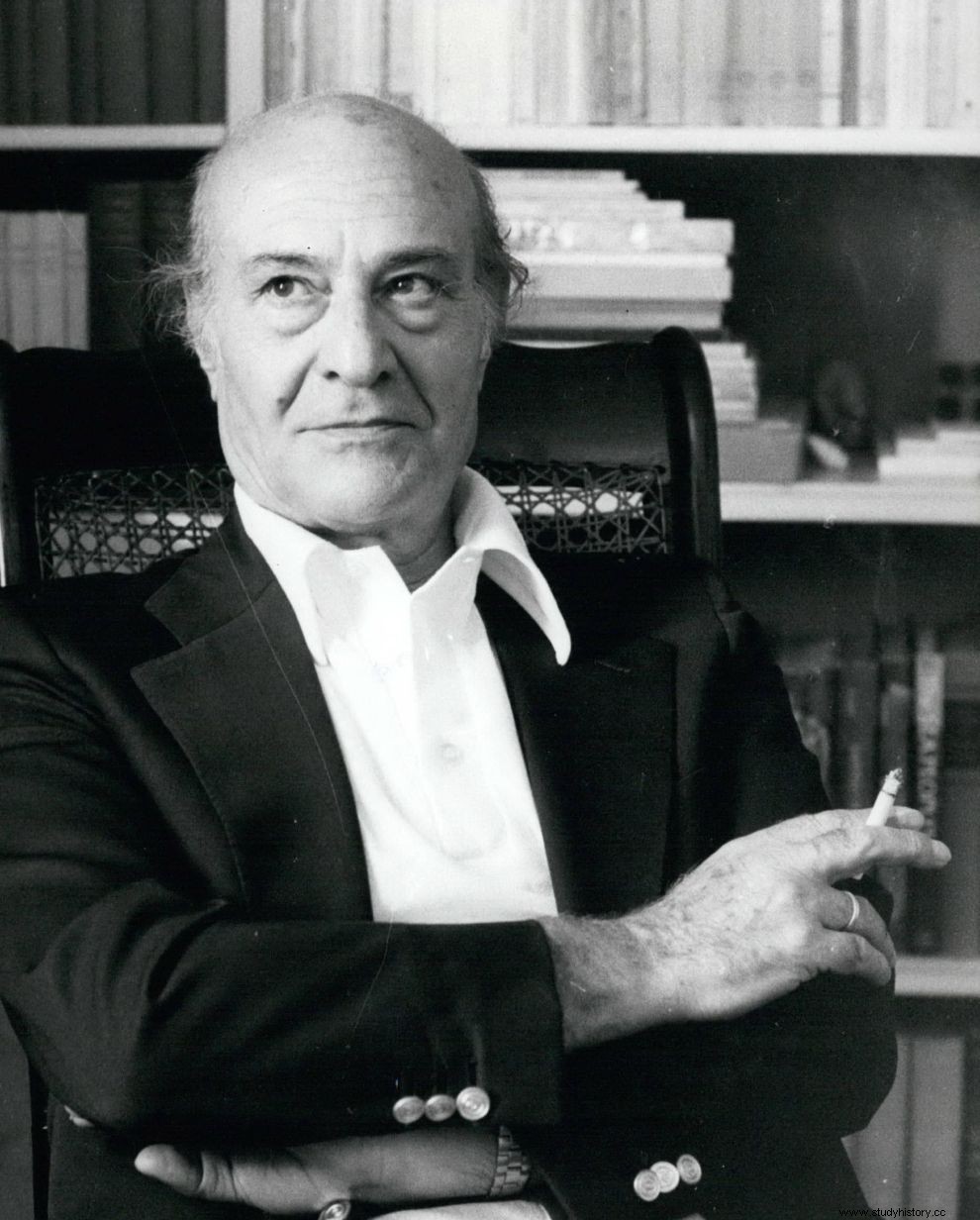
With the declaration of the Greco-Italian war, Elytis found himself at the front, fell seriously ill with typhus and lived through the drama of occupation . The experience of death, which he lived both on the front line of the battle, and in the difficult years that followed until liberation, "haunted" him, preparing the "scalpel" to expose the terrifying inner "silence", the agony ahead in the irrational reading of human existence, which would be symbolized through the nightmarish burden of "Axion Esti". But before the "fire" dominated his lyrics, he managed to release in 1943 "Helios the First", another dreamlike escape with an eternal destination of hope and a new "dawn".
"Helios the First" expressed Elytes' belief in "liberation", with sacrifices and struggles as a necessary element, forging the destiny of the conflict through "braves" , made of "stones, blood, iron and fire". The road to truth, the desire to conquer the vision, "we build, dream and sing", all these gave a magical idea of life, which in the footsteps of Elytis, continued to have as "companions", the sea, the stars , the sky, the earth, the sun, the sirens, the basil, the poppies, the marbles, the vines, the lemon trees, the birds, the mint, the orchards, the bells, the plains, the horizons, the beauty of Greece .
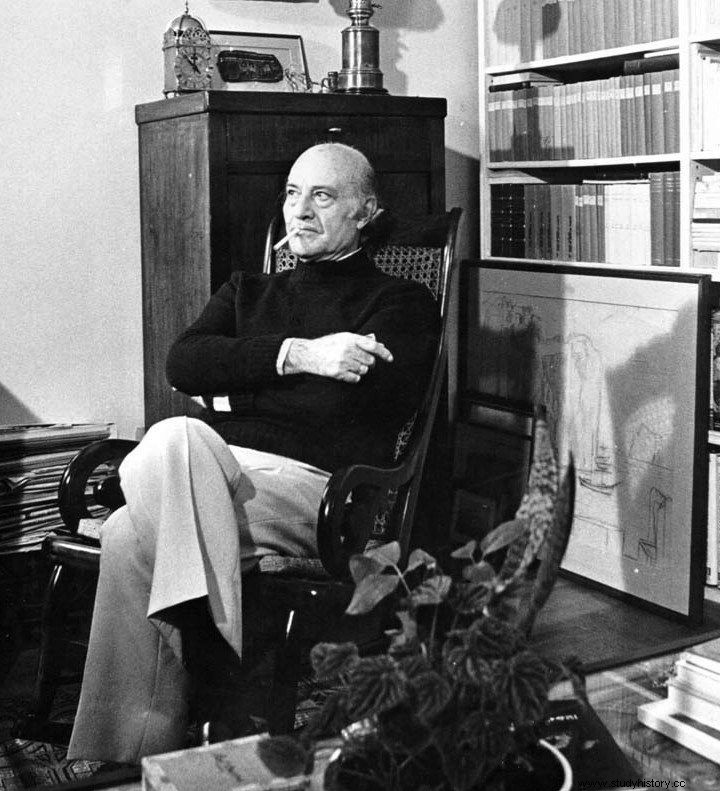
In 1945 it was followed by "Heroic song and mourning for the lost lieutenant of Albania", a violent record of the tension between life and death, a sample clearly more mature in the way of aesthetic realization and the presentation of the poet's personal experiences than 40's war . In "Song", Elytis became more metaphysical, found a new dynamic, acted in a different "real", turned his grief into verbal defiance and "sowed" his own lyrical resonance in pain without fanciful:"But the night rose like trampled viper. Just stopped for a moment in the teeth of death - and then suddenly poured down to his pale claws".
During the civil war, in 1948, Elytis traveled to Switzerland and then settled in Paris, where he attended philosophy courses at the Sorbonne University , while he was also a founding member of the International Union of Art Critics. There he met important poets, such as Andre Breton (founder of Surrealism), Tristan Jara (founder of Dadaism), Albert Camus and of course his first great influence in poetry, Paul Helyard. But he also came into contact with famous painters, such as Pablo Picasso, Juan Miró, Giorgio de Chirico, Henri Matisse, Marc Chagall and Alberto Giacometti. In 1950 he visited Spain and immediately after, England.
THE MASTERPIECE "VALUE IS"
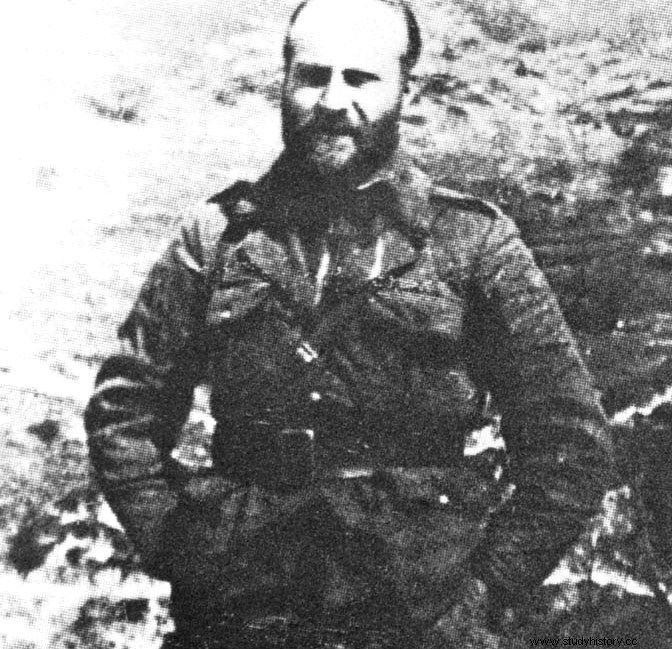
It was there, abroad, during the four years away from home (1948-1951), that Elytis was inspired by his great masterpiece, "Axion Esti". About a decade after the publication of the work, he himself had narrated that when he was leaving Greece, having lived through the war, the occupation and the civil war ("those terrible years where all the sufferings together had left no stone unturned" ), had seen some children playing in an alana. "Pale, dirty, skeletal with deformed knees, with sunken faces," she was the last image he took with him, thinking that "this was the fate of the Genus who followed the path of Virtue and fought for centuries to exist".
Arriving at Lausanne, the sad "contrast" appeared before him, when he saw a company of little Swiss, riding by the lake. "Rusty, laughing, dressed like princes, they passed me and left me in a state beyond indignation." Elytis' stay in Europe made him see even more clearly the drama he was living behind, his place. The fate of Greece among other nations was the first spark. And the second came from "the need he felt for a prayer , in other words, to give his protest against injustice the form of a church liturgy". And thus "Axion Esti" was born.
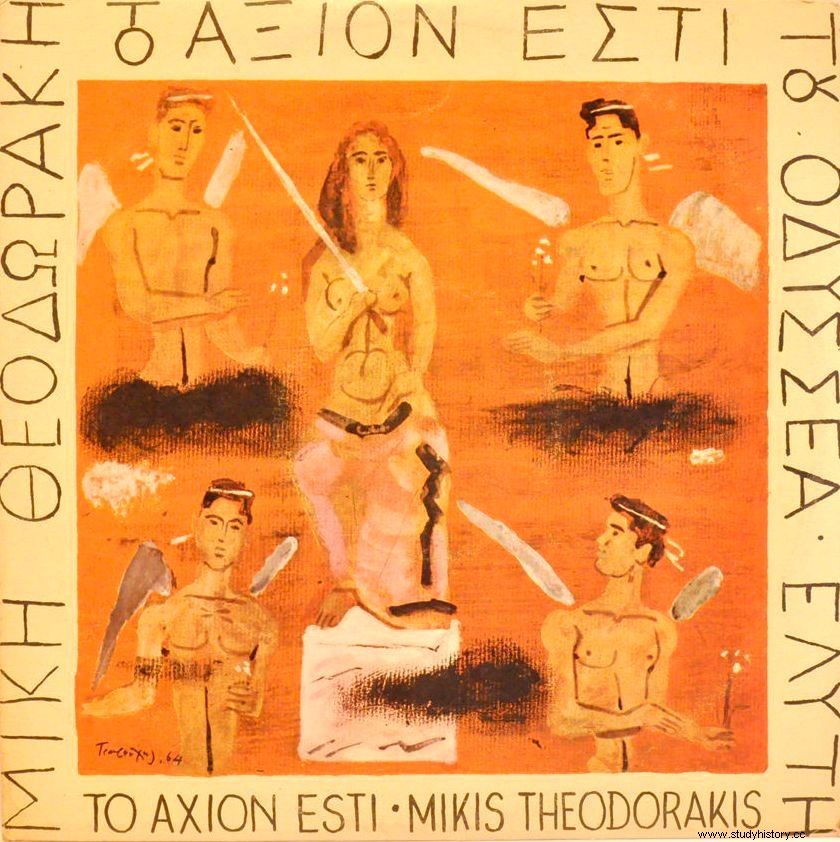
The work was printed in December 1959 and released in March 1960, after almost fifteen years of "silence". The scholar and professor of modern Greek literature, G. P. Savvidis, characterized "Axion Esti" as "one of the most beautiful and honorable examples of relentless artistic consciousness in the history of European poetry". Elytis "liberated" the lyrics, offering us perhaps the most important sample of writing of a higher reality, the one that can only come from popular power . The clarity and skill of the expression created a precious frame, in which life and death were able to coincide, like visual codes, animating the images as "surfaces".
And when a few months after the release of the work, Elytis approached Mikis Theodorakis and gave him the book, believing that it could inspire him, that's when the foundations were laid for perhaps the most unsurpassed, most lucid, enlightened global "formulation" of the absolute expressive reality that modern Greek civilization ever experienced, with the initiation into the "higher" , through a conscientious assertion, sealed by the "mythologies" of life and art, of lyrics and music, of solitary prayer and monumental oratorio. The set to music "Axion Esti" turned Elytis' lyrics into notes and took them on a journey to the eternity of living memory.
THE POETRY OF ELITE AND THE NOBEL
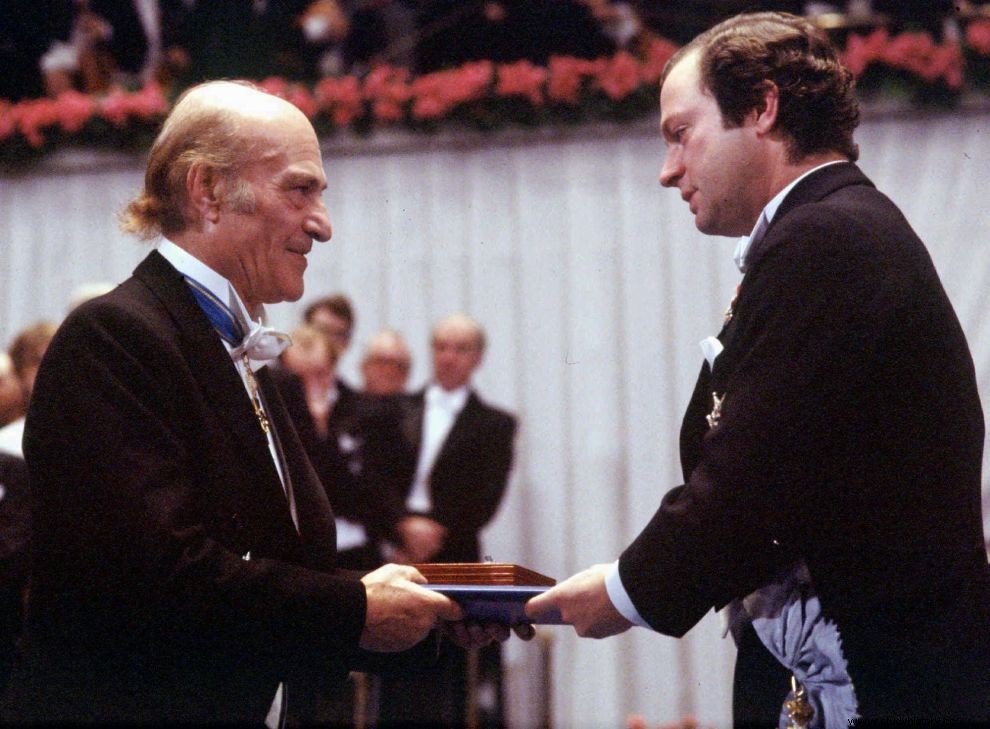
"I regard poetry as a source of innocence, which is full of revolutionary forces. My mission is to direct these forces against a world that my consciousness cannot accept, so as to bring this world, through constant transformations, into a greater harmony with my dreams". This is how Elytis understood his own art, his own speech, based on the impulse of the senses, on the light but also on the dark. In the magic of life, but also in the cold of death. In the lyricism of emotions, in the intoxication of nature, in the ecstasy of the miracle, in the sun, but also in the shadow, the black, the catachthon, the orymagdos, the void. "For nothing, which is nevertheless everything" .
All this, worked to the superlative degree by Elytis, with consistency and dedication throughout his journey, brought his award in 1979 with the Nobel Prize in Literature. In its announcement, on October 18 of that year, the Swedish Academy justified its decision as follows:"For his poetry, which, against the background of the Greek tradition, enlivens with sentimental power and intellectual clarity of vision the struggle of modern man for freedom and creativity". And on December 10, at the award ceremony in Stockholm, the poet received the award from King Charles Gustavus, quoting afterwards, in his speech, his personal, non-negotiable principles.
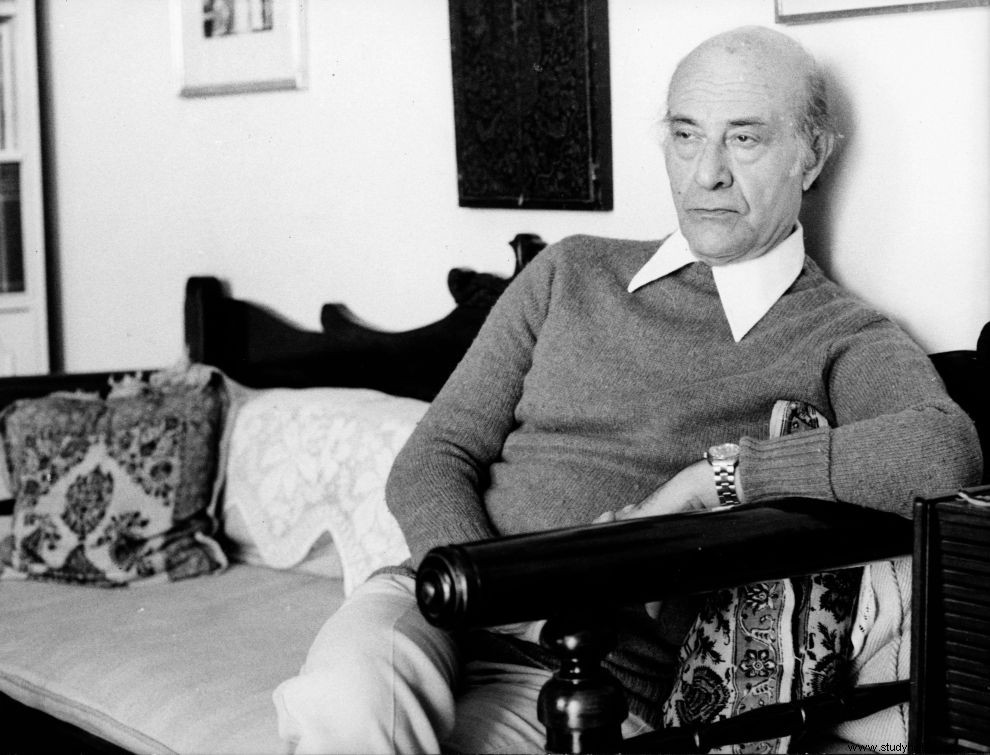
"Let me, please, speak in the name of brightness and transparency. Because it is these qualities that defined the space in which I was ordered to grow and live... Because that is what poetry :the art of being led and reaching towards that which transcends you. From the myriad of secret signs, with which the world is scattered and which constitute as many syllables of an unknown language, compose words and from the words phrases whose decipherment brings you closer to the deepest truth... For the poet - it may seem strange but it is true - the only common language he feels left is the senses".
Elytis continued to write and publish poetry collections and essays until his last years, remaining creative, multidimensional and fully alive, always setting his dreams against the backdrop of Greece and tradition. He died on March 18, 1996 in Athens, from a heart attack, at the age of 85. But the legacy he left behind placed him among the "immortals" of this place, to those who transformed language into "a tool of magic and a bearer of moral values". Elytis, speaking of senses, did not mean the accessible, but the ultimate, transforming the mundane light into a transcendent one, through the most penetrating and clear look.
THE DEPOSIT OF ELITE
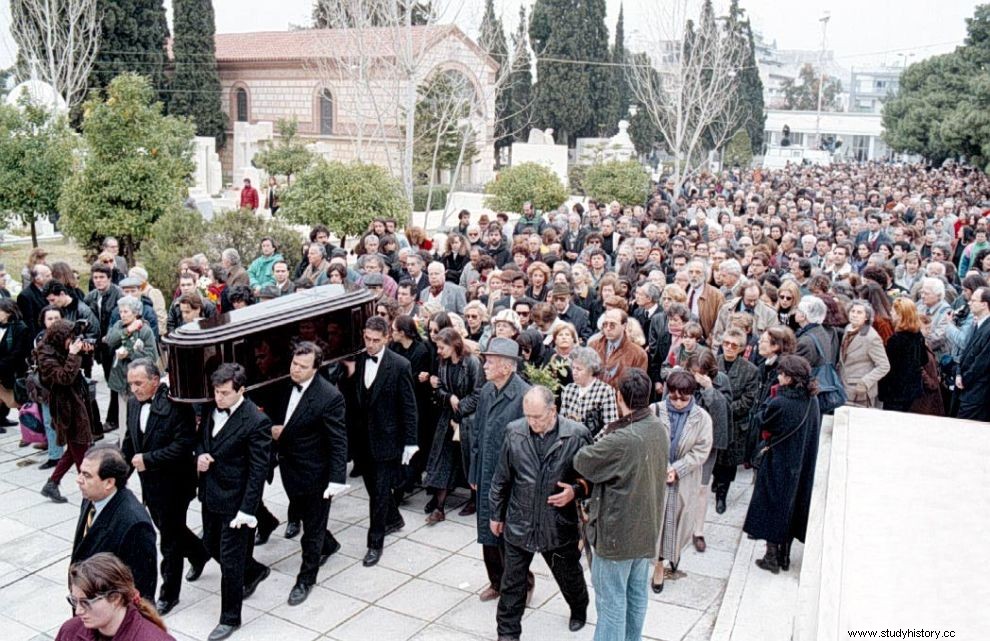
It is not only the insurmountable beauty of "Axion Esti" with its "miracles" ("One swallow", "Tis agápis imamata", "Tis diációsios ilie noite", "I open my mouth"), which became hymns in the folk song, beating the hearts of ordinary people. Many composers set his verses to music, thus giving his poetic speech another aspect, that of the spark that gives rise to passion and spreads "moral sun":from the "Little Cyclades" and the "Archipelagos" of Mikis, to the "Great Erotic" of Manos, from the "Sun the First" of Markopoulos, to the "Sun of the Heliator" of Laios, and from the "Sea Clover" of Kokotos, in the "Orientations" of Andriopoulos.
Odysseus Elytis was, according to his own words, "the stern of a generation that bowed to the sources of a Greekness, and on the other hand, the first of another that accepted the revolutionary theories of a modern movement". He took elements from both the Greek tradition and the new, western forms and techniques, applying them to the "modern sensibility". "Go through the fire to reach the shine". "He fought the darkness inside him, so that tomorrow he could have his part in the sun". He rebuilt Greece with an olive tree, a vine and a ship. And like "Helios the sun-bearer, the stone-player" , he opened his mouth a little and immediately smelled spring...
* The text was published for the first time on 2/11/2021 on the occasion of the 110th anniversary of the birth of Odysseus Elytis.
